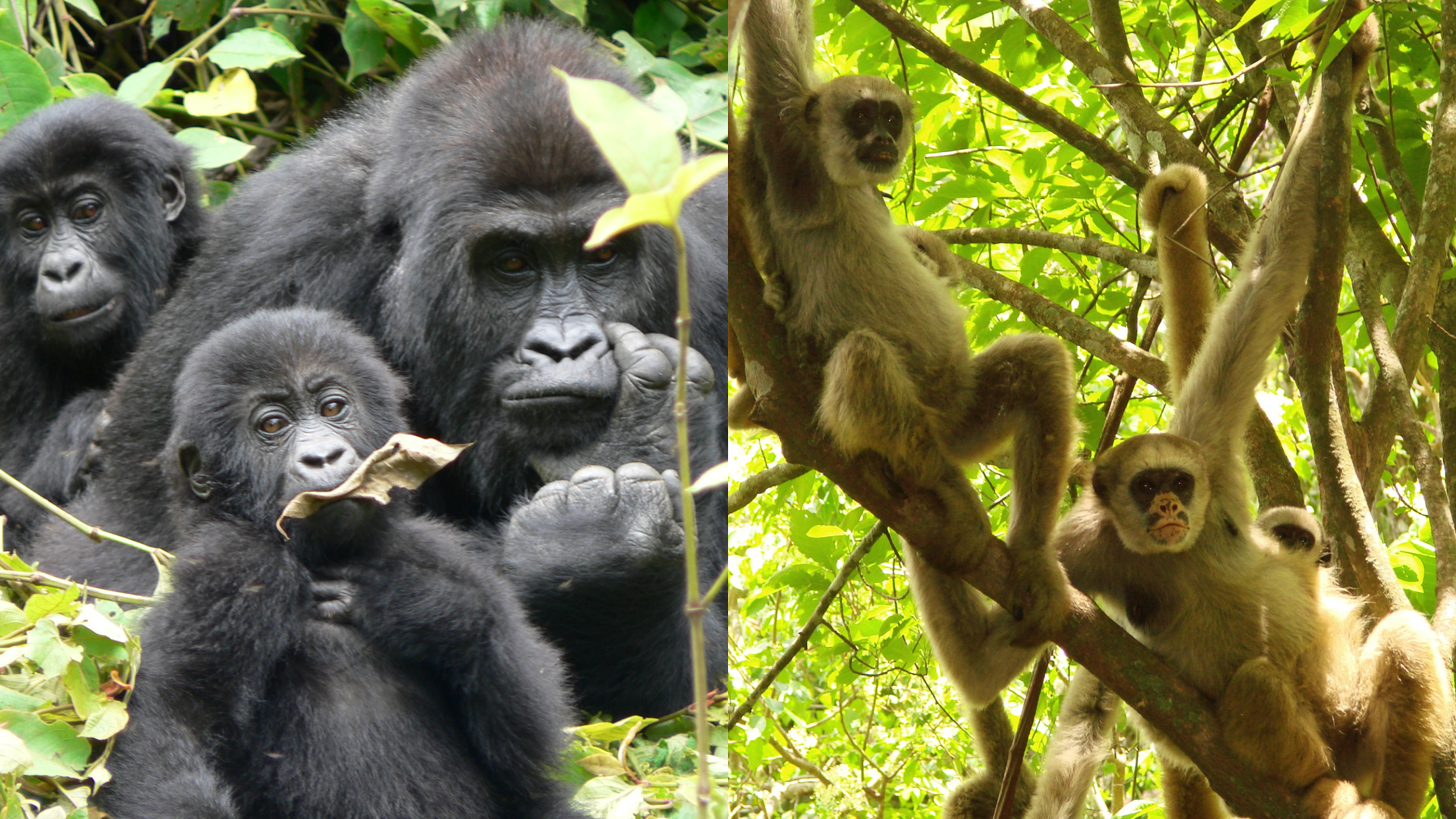
Modern Human Society as seen by Primatologists
- 16 June 2021
- 1:00pm-2:00pm (BST)
- Online
- https://dajf.org.uk/event/modern-human-society-as-seen-by-primatologists
- events@dajf.org.uk
- Tweet
The pandemic has transformed many aspects of our lives and societies. Social distancing rules have prevented us from travelling and attending engagements, and have changed the way we interact with others. Advances in smartphones and information technology have also accelerated the use of virtual spaces as means of communication rather than traditional face-to-face conversation. This dramatic transition indicates a change in the rule of thumb for mankind for millions of years, that society is created through continued physical interactions. So where is modern society heading? And what is the essence of being human? Observing the parallels between primate and human societies may provide clues to this question.
In this webinar, we look at the evolution of human beings and explore modern human societies from the perspective of primate societies. Dr Yamagiwa will talk about the parallels between ape societies and human societies. He will describe the evolutionary pathway of an empathic society based on food sharing and cooperative breeding, unique to humans, and will predict our future with AI and a digital transformation. Dr Strier will talk about the parallels between New World monkey societies and human societies. She will describe the evolutionary alternatives to aggression and review the importance of social flexibility within groups and communities for sustaining peaceful, egalitarian societies.
Date: Wednesday 16 June 2021
- UK Time: 1:00pm-2:00pm (BST)
- Japan Time: 9:00pm-10:00pm (GMT+9)
- US Central Time: 7:00am-8:00am (GMT-5)
About the contributors
Dr Juichi Yamagiwa is a world-renowned expert in primatology and human evolution and was President of Kyoto University from 2014 to 2020. He has been a Professor at Kyoto University’s Graduate School of Science since 2002. He was Dean of the Graduate School and Faculty of Science from 2011 to 2013 and a member of the Administrative Council of the University from 2012 to 2013. Dr Yamagiwa served as President of the International Primatological Society from 2008 to 2012, and as Editor in Chief of the journal Primates from 2010 to 2014. He has served as President of the Japan Association of National Universities, a member of the Science Council of Japan, and a member of the Japanese Ministry of Environment’s Environmental Policy Committee. Since April this year, he has served as Director of Research Institute for Humanity and Nature.
Dr Karen B. Strier is Vilas Research Professor and Irven DeVore Professor of Anthropology at the University of Wisconsin-Madison, where she has been based since 1989. She is an international authority on the endangered northern muriqui monkey, which she has been studying in the Brazilian Atlantic forest since 1982. Her pioneering, long-term field research has been critical to conservation efforts on behalf of this species, and has been influential in broadening comparative perspectives on primate behavioral and ecological diversity. Dr. Strier has been serving as the President of the International Primatological Society since 2016. She was elected as a member of the U.S. National Academy of Sciences in 2005, and of the American Academy of Arts and Sciences in 2009. In 2020 she was awarded the Muriqui Prize by the National Council of the Atlantic Forest Biosphere Reserve for her scientific contributions to the conservation of biodiversity.
